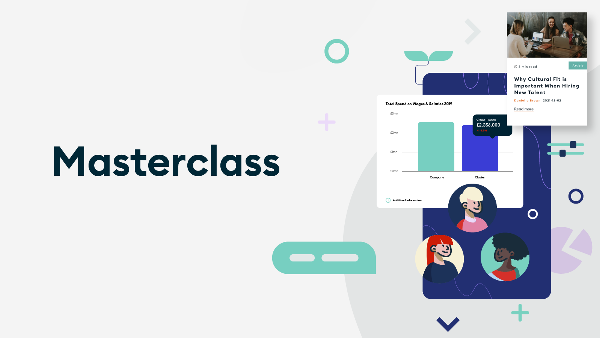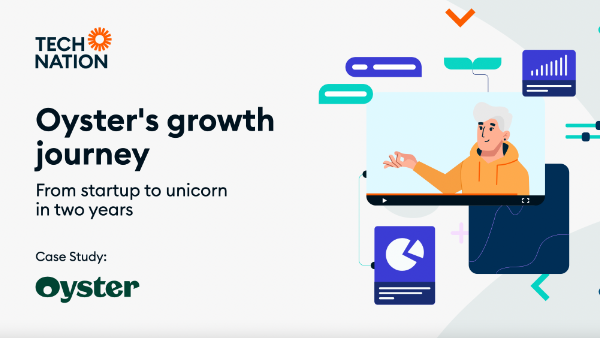International Hiring: How Can You Get the Best Talent?

Expanding internationally is an achievement that not all companies can manage.
The red tape, different ways of working country to country, as well as the different time zones can all slow down, if not block the process.
And even if you do manage to grow internationally, there remains the critical challenge of how to grow your culture too. Ensuring a united sense of belonging and efficient ways of working across continents is a tricky affair.
Becky Read, VP of People, FocalPoint Positioning answered a few of these questions for us.
International hires - what are the experts looking for?
FocalPoint has expanded internationally over the past nine months, and Becky has had a front row seat for this area of growth within the business. But what does the company look for in international hires?
“We operate in a niche market and whilst skill is incredibly important, our culture is about hiring great people who have a passion in creating next generation technology solutions. When hiring, we look for flexibility and enthusiasm in creating the right environment for our people to thrive.
“It's not about hiring for cultural fit, it's hiring people that will be a cultural 'addition' to your business. Our people are our best assets and we are always on the lookout for exceptional talent in the smartphone and/or chipset space,” she says.
Taking a deeper dive into the intricacies of international expansion, Becky says the current market and the economy are the main struggles they’ve found.
“Alongside the Great Resignation and other international challenges, we know that job security, remuneration and flexibility are the top priorities for many candidates. As we continue to build our brand within a new geographical location, the challenges have been enticing people to find out more about FocalPoint.
“There are many different options to attract talent, including paid-for advertising on platforms such as LinkedIn, headhunting and working with recruitment agencies. It's important to continually test the market as an SME to understand what works and what does not. The majority of our international hires have all been through LinkedIn headhunting - something I strongly advise that smaller companies consider as part of their hiring strategy," Becky says.
“It's not about hiring for cultural fit, it's hiring people that will be a cultural 'addition' to your business.
”
Maintaining a human approach
“We should not move away from the human approach. AI and technological advances have advantages in their own capacity however, building that personal connection with a candidate will always be the clincher in the hiring process. This is what has led to our ongoing success of global hiring over the last few years.” Becky says.
In today’s market, candidates are doing their research ahead of application and interviews to ensure they’ll be happy from the get go. And Becky understands and agrees with this.
She says: “Absolutely, and that's what's really important to us. We don't just review CVs, we have these organic, fluid conversations with people because at the end of the day it’s a mutual relationship.
“We want our people to feel engaged, supported and excited about the future of FocalPoint. And equally, we know that offering flexibility, a competitive remuneration structure and progression is what our people want through our continuous communications with them.
“We are a G-Suite organisation and use Google Hangouts as our virtual hiring tool for interviews. We do not have a strict, formal interview structure but always remain consistent with our approach.”
“For us, it’s about having good conversations, understanding if there is a mutual interest in skills and work, alongside finding out what makes them tick. Our technical roles tend to be a mixture of tests and scenarios, however on the whole we are looking to hire great people with a passion for innovation.
“I think the difference between a startup hiring method and larger companies is the slicker process. We have a quick turnaround phase in comparison to a lot of other large organisations, where it would probably take two months plus and would have five different interview stages within that.
“We're positioned in a market where you have to be competitive as a business. You have to act quick, and if you're not actively responding or building those relationships in the beginning, then you're really going to struggle to hire that talent anywhere in the world.”
Finding the right tools
FocalPoint uses a range of different tools to hire effectively.
Sponsored adverts, headhunting on Linkedin, utilising a diverse range of advertising platforms and recruitment agencies, Becky says there are quite a few different opportunities.
Becky says: “More often than not, we have to test the market and really understand the type of candidate we are hiring for in order to capture their attention.
“LinkedIn recruiter is probably the key tool we use. I perform a lot of data analysis as well and I think that's really important, reflecting on what's worked in the past, what needs to change, how do we change approaches; advertising as well, what is the outreach?
“As a business we’ve started to heavily rely more on the data to determine what alternate methods we may need to consider.
“We do a lot from a diversity and inclusion perspective as well. We hire on a lot of diverse job boards, and that's something that I don't always think a lot of startups do. You'd be surprised by the amount of great talent that's available on these platforms which are being missed.”
There have been many studies undertaken over the years proving just how beneficial diverse teams and boards are, and Becky agrees with its importance.
She says: “That’s the core part of who we are as a business. We welcome diversity and inclusion across all levels of our organisation. We know the statistics speak for themselves and it’s up to organisations to really push boundaries and hire great people outside of the normal avenues.
“We have to test the market and really understand the type of candidate we are hiring for in order to capture their attention.
”
The advantages of visas
“When I joined the organisation, I implemented visa sponsorships as an opportunity to reach exceptional talent from across the globe. This is something that startups may not typically consider given the complexity but it’s a learning process and we have definitely reaped the benefits of it.
“Around a third of our hires come from visa sponsorships. From Argentina, Sub-saharan Africa, India, Turkey, Spain - the availability for that talent has helped us significantly in attracting the right people for our positions,” Becky says.
Processes are key
When hiring internationally, each country has its own set of legalese and laws that companies in the UK need to navigate.
Inevitably there will be difficulties that can crop up when hiring internationally, but by having the right processes in place, businesses can tackle any problems that might arise. As Becky tells us.
“The main challenges with international hiring and bringing people across to the UK is the timeframe, financial costs and various steps involved. The process can appear daunting at first, however the most important factor is to not only have a grasp of this from an employer's perspective, but equally be aware of the impact and requirements for a successful candidate.
“Now that we have a subsidiary set up in the US, we can streamline our process of hiring efficiently. We have also started working with an EOR (Employer of Record) and this has again assisted the efficiency of hiring remotely, should we ever decide to proceed down this route.”
But Becky notes the number of visas coming up too which can help with international hiring.
She says: “For startups/scaleups, I would recommend the High Potential Visa (HPV). This offers businesses the opportunity to hire PhDs or graduates from abroad, to come to the UK. The new Scaleup Visa is an alternative avenue coming out in August 2022 which will speed up the visa sponsorship process for many organisations who are looking to hire under time constraints.
“A lot of companies aren't always fully aware of what's available. The options are there, it's just recognising what they are.
“I would say the only other challenge from an international hiring perspective is that we are in a very candidate-driven market. With an increasing number of roles and scarcity of available talent, the hiring war continues, especially within the technology sector. It’s important therefore to build your brand awareness and showcase how your organisation differs from others.
“Candidates are looking at remuneration, benefits, career progression and flexibility.
“We've started having a lot of conversations around career progression for our teams, because at the end of the day, it's important to them and it's important to us as a business that we all grow together to achieve that same vision."


